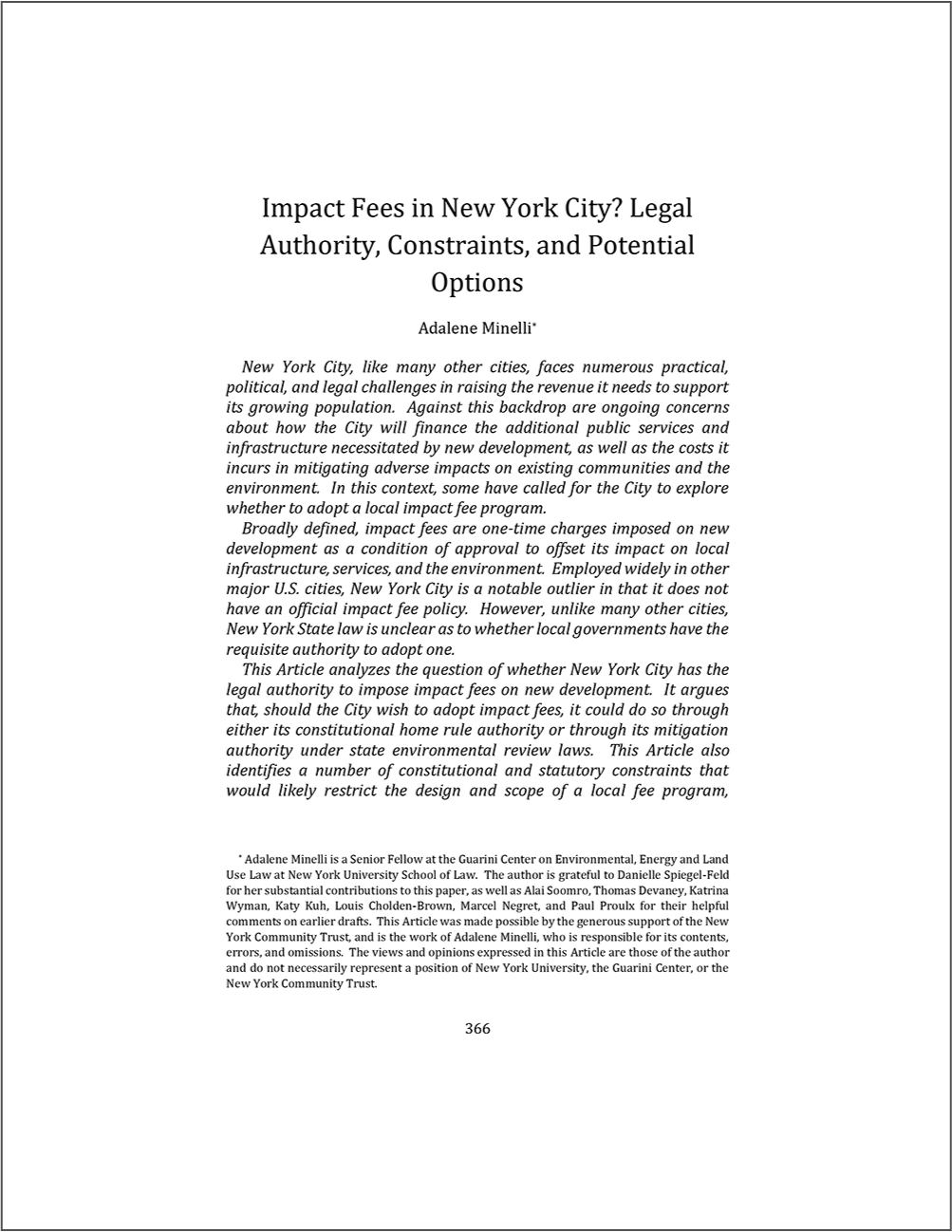New York City, like many other cities, faces numerous practical, political, and legal challenges in raising the revenue it needs to support its growing population. Against this backdrop are ongoing concerns about how the City will finance the additional public services and infrastructure necessitated by new development, as well as the costs it incurs in mitigating adverse impacts on existing communities and the environment. In this context, some have called for the City to explore whether to adopt a local impact fee program.
Broadly defined, impact fees are one-time charges imposed on new development as a condition of approval to offset its impact on local infrastructure, services, and the environment. Employed widely in other major U.S. cities, New York City is a notable outlier in that it does not have an official impact fee policy. However, unlike many other cities, New York State law is unclear as to whether local governments have the requisite authority to adopt one.
This Article analyzes the question of whether New York City has the legal authority to impose impact fees on new development. It argues that, should the City wish to adopt impact fees, it could do so through either its constitutional home rule authority or through its mitigation authority under state environmental review laws. This Article also identifies a number of constitutional and statutory constraints that would likely restrict the design and scope of a local fee program, including limitations under the state’s doctrines on preemption and local taxation, and under the federal exactions jurisprudence.
Published in Columbia Journal of Environmental Law, Vol. 48, No. 2
